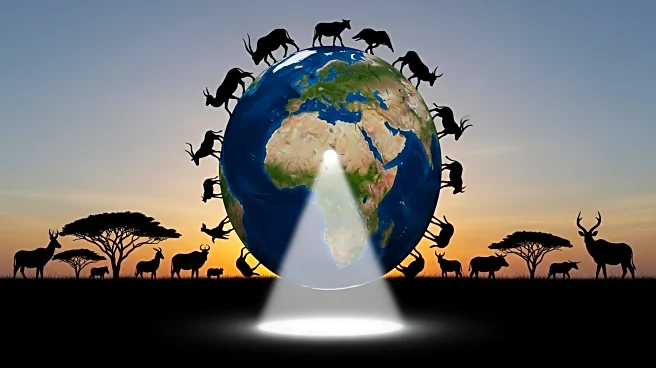What is the story about?
What's Happening?
During the 80th session of the United Nations General Assembly, African leaders addressed global issues such as climate change and inequality but largely ignored significant conflicts within their own continent. Leaders like Nigerian Vice President Kassim Shettima and Namibian President Netumbo Nandi-Ndaitwah spoke on international matters, including the situation in Gaza, but did not significantly address the ongoing conflicts in Sudan and Congo. Analysts have noted this omission, highlighting the humanitarian crises in these regions and the lack of substantive discussion by African leaders at the U.N.
Why It's Important?
The lack of focus on African conflicts at the U.N. General Assembly highlights a critical gap in addressing humanitarian crises that have resulted in thousands of deaths and widespread displacement. This oversight may reflect broader institutional challenges within African multilateral organizations and the continent's ability to prioritize its own issues on the international stage. The absence of African leaders in negotiations and peace initiatives could hinder efforts to resolve these conflicts, leaving external powers to lead diplomatic efforts, which may not align with the continent's interests.
What's Next?
As external powers continue to lead negotiations for peace in Sudan and Congo, there is potential for new agreements, such as the Washington-led peace deal between Congo and Rwanda. However, the involvement of outside interests may complicate the dynamics, as these powers have been accused of being parties to the conflicts. The situation calls for increased engagement from African leaders and institutions to assert their role in resolving these crises and to ensure that peace initiatives are aligned with the continent's needs.















